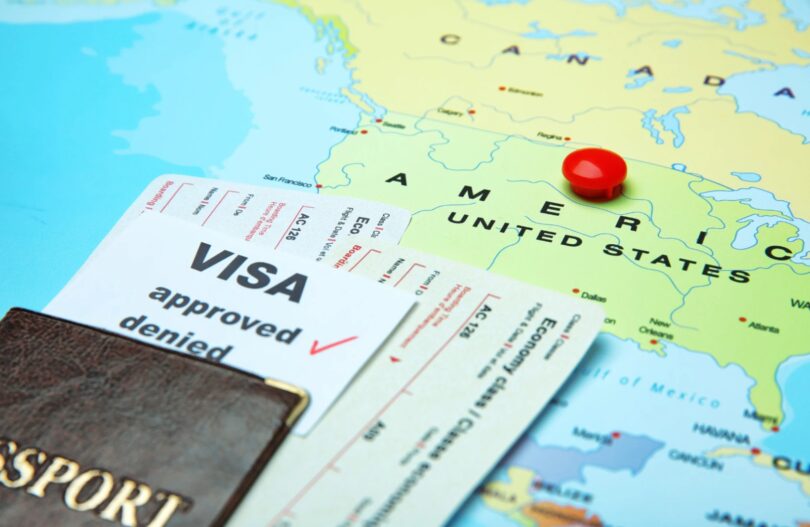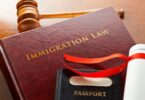Advertisements
In February 2025, the U.S. Department of State updated its non-immigrant visa renewal policies, affecting many foreign nationals. These changes primarily impact the eligibility criteria for interview waivers during visa renewals.
Previous Policy: The 48-Month Interview Waiver Window
During the COVID-19 pandemic, to reduce in-person interactions and address consular backlogs, the U.S. Department of State extended the eligibility period for visa interview waivers from 12 months to 48 months. This meant that individuals whose visas had expired within the last 48 months could renew their visas without attending an in-person interview, utilizing the “Dropbox” facility at U.S. embassies and consulates. This temporary measure applied to various non-immigrant visa categories, including H-1B, H-4, B1/B2, and F1 visas.
Current Policy: Reversion to the 12-Month Interview Waiver Window
As of February 2025, the Department of State has reinstated the pre-pandemic eligibility criteria for the visa interview waiver program. The key change is the reduction of the eligibility period from 48 months back to 12 months. Now, to qualify for an interview waiver, applicants must renew their visas within 12 months of expiration and meet specific criteria, including applying for the same visa category and having no prior visa refusals or ineligibility issues.
Implications for Non-Immigrant Visa Holders
This policy change has several implications for non-immigrant visa holders:
- Increased Need for Timely Renewals: Visa holders must now be more vigilant about renewing their visas within the 12-month window to qualify for an interview waiver.
- Potential for Longer Wait Times: Applicants who do not qualify for an interview waiver may face longer wait times for in-person interview appointments at U.S. embassies and consulates.
- Impact on Dependents: Spouses and dependents of visa holders, such as those on H-4 or L-2 visas, must also adhere to the new 12-month renewal window to qualify for interview waivers. Misalignment in eligibility could result in delays for families traveling together.
Major Modifications in the Visa Renewal Policy
-
Reduction of the Visa Renewal Window from 48 Months to 12 Months
- Previously, visa holders could renew their non-immigrant visas without an interview if their visa had expired within 48 months.
- Now, the renewal period has been reduced to just 12 months, meaning applicants must act quickly to avoid the need for an in-person interview.
-
Increased In-Person Interview Requirements
- More applicants will now have to attend interviews at U.S. embassies and consulates, potentially leading to longer wait times.
- This change affects visa categories like H-1B, H-4, B1/B2, and F1, among others.
-
Rollback of COVID-19 Pandemic Measures
- The 48-month renewal policy was a temporary measure implemented during the pandemic to minimize in-person contact.
- The U.S. has now reverted to pre-pandemic policies, citing improved global conditions.
New Eligibility Requirements for Visa Renewal
-
Visa Expiration Limit of 12 Months
- Only those whose visas expired within the last 12 months are eligible for renewal without an interview.
- If a visa expired more than 12 months ago, an in-person interview is mandatory.
-
Same Visa Category Requirement
- The applicant must be applying for a visa in the same category as the previously issued visa.
- Switching from one visa type to another (e.g., from a B1/B2 tourist visa to an H-1B work visa) requires a new application and an interview.
-
No History of Visa Denials or Ineligibility Issues
- Applicants with prior visa denials or ineligibility issues must attend an in-person interview.
- The only exception is if the previous denial was overturned.
-
Consular Discretion on Interview Waivers
- Even if an applicant meets all the criteria, the consular officer has the final say in granting an interview waiver.
- Some applicants may still be required to attend an interview if further verification is needed.
How to Calculate the 1-Year Timeline for Visa Renewal
-
Identify the Expiration Date on Your Visa
- Check the visa stamp in your passport to find the “Expiration Date.”
- This is the date when your visa officially expired.
-
Count 12 Months from the Expiration Date
- Start counting from the day after your visa expiration.
- The 12-month period ends exactly one year later.
-
Ensure Your Renewal Application Falls Within This Window
- Your visa renewal application must be submitted before the 12-month period expires.
- If you miss this deadline, you will need to attend an in-person interview.
-
Use a Date Calculator for Accuracy
- If unsure, use a date calculator online to confirm the last eligible renewal date.
- This helps avoid mistakes that could lead to unnecessary delays.
Example:
- If your visa expired on March 15, 2024, you must renew it by March 15, 2025 to qualify for an interview waiver.
- Applying on March 16, 2025, or later means you will need to schedule an in-person interview.
Recommendations for Visa Holders
As a result of these changes, non-immigrant visa holders are advised to:
- Plan Ahead: Monitor visa expiration dates closely and initiate the renewal process well before the 12-month post-expiration window closes.
- Stay Informed: Regularly check the U.S. Department of State’s website or consult with immigration professionals for the latest updates on visa policies.
- Prepare for Interviews: If ineligible for an interview waiver, prepare for the possibility of attending an in-person interview, which may require additional documentation and planning.
Frequently Asked Questions (FAQs)
-
What is the current eligibility period for a visa interview waiver?
As of February 2025, the eligibility period for a visa interview waiver has been reduced from 48 months to 12 months. This means applicants must renew their visas within 12 months of expiration to qualify for an interview waiver.
-
Which visa categories are affected by this change?
The change affects various non-immigrant visa categories, including H-1B (specialty occupation workers), H-4 (dependents of H-1B visa holders), B1/B2 (business and tourist visitors), and F1 (students), among others.
-
What happens if my visa expired more than 12 months ago?
If your visa expired more than 12 months ago, you are no longer eligible for an interview waiver and must attend an in-person interview to renew your visa.
-
Are first-time visa applicants eligible for interview waivers?
No, first-time visa applicants are generally required to attend in-person interviews. The interview waiver program primarily benefits those renewing visas within the same category and within the specified eligibility period.
-
How does this change impact dependents of visa holders?
Dependents, such as spouses and children on H-4 or L-2 visas, must also renew their visas within the 12-month window to qualify for an interview waiver. Failure to do so may require them to attend in-person interviews, potentially causing delays in travel plans.
-
Why did the U.S. Department of State make this change?
The extended 48-month interview waiver window was a temporary measure during the COVID-19 pandemic to reduce in-person interactions. The recent change reverts to pre-pandemic policies as global conditions have evolved.
-
Will this change affect visa processing times?
Yes, with more applicants required to attend in-person interviews, there may be longer wait times for visa processing. It’s advisable to plan accordingly and schedule appointments well in advance.
-
Where can I find more information about these changes?
For the most accurate and up-to-date information, visit the U.S. Department of State’s official website or contact the U.S. embassy or consulate in your region.
Conclusion
The U.S. Department of State’s decision to revert to the 12-month interview waiver window marks a significant shift from the temporary measures implemented during the pandemic. Non-immigrant visa holders must adapt to these changes by staying informed and proactive in managing their visa renewals to ensure compliance and minimize potential disruptions to their travel plans.
Advertisements



